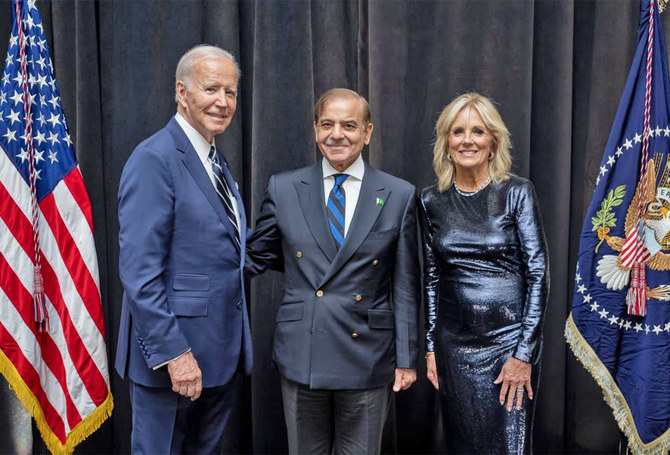For the past few weeks, the world has watched as militants from Pakistan came into India and conducted a shocking killing spree against innocent Hindu tourists. 26 people were killed simply due to their faith.
The terror networks from Pakistan, namely The Resistance Front (TRF), an offshoot of the dreaded terror organization the Lashkar-e-Taiba, claimed responsibility for conducting the heinous Pahalgam attacks.
Since then, India has ascertained that it will punish those who have conducted the shocking act as well as uproot their backers and funders. India responded with a military Operation, Operation Sindoor, on May 7 targeting terror camps in Pakistan. Since then, Pakistan, instead of accepting and rooting out the terrorists, has attacked India with drones and projectiles.
The world has been watching this and has done nothing to counter Pakistan and its terror network, and now they have gone one step further. Amid this clash, the IMF has provided ‘aid’ of $2.4 billion to Pakistan.
Pakistan is funded by the IMF.
The main culprits are the Western states that have long backed these acts of Pakistan, even though the dreaded Osama Bin Laden was found hiding in the nation. The main funders of the IMF are the United States: The largest contributor, holding approximately 16.5% of the voting share, Japan with about 6.1% of the share. China with around 6.1%, Germany with roughly 5.3%. While France and United Kingdom each hold about 4.0% of the voting share.
Pakistan has been a regular recipient of financial assistance from the International Monetary Fund (IMF). As of May 2025, Pakistan has entered into over 20 IMF programs since joining the organization in 1950.
Now, in May 2025, the IMF has approved a new $1.4 billion loan for Pakistan under its climate resilience fund. Additionally, the first review of an existing $7 billion economic stabilization program was completed, unlocking an additional $1 billion for Pakistan, bringing total disbursements under the $7 billion package to $2.4 billion.
Pakistan’s Shocking track record
The IMF’s primary mandate is economic stabilization, not political interference. Its aid packages are apparently said to be conditional, typically requiring the recipient country to implement fiscal reforms, increase transparency, reduce subsidies, and improve tax collection. In theory, these conditions are meant to improve long-term economic health.
Pakistan’s track record on terrorism financing and anti-money laundering has long drawn international scrutiny. The Financial Action Task Force (FATF), a global watchdog on illicit financial flows, placed Pakistan on its “grey list” from 2018 to 2022 due to strategic deficiencies in countering terror financing and money laundering.
While Pakistan was removed from the list in October 2022 after claiming to meet FATF’s 34-point action plan, critics argue that the reforms were largely superficial and implemented under international pressure rather than genuine political will. FATF had repeatedly called out Pakistan’s failure to act decisively against UN-designated terror groups such as Lashkar-e-Taiba and Jaish-e-Mohammed.
Pakistan’s inclusion on the grey list significantly affected its economy by deterring foreign investment and raising borrowing costs. Nonetheless, the country avoided blacklisting—thanks, in part, to diplomatic lobbying by China, Turkey, and some Gulf nations.
India and other regional observers maintain that Pakistan’s removal from the grey list was premature and politically influenced. They argue that without consistent enforcement of FATF standards, there’s a real risk that financial aid from institutions like the IMF could once again be misused.
The West and especially the US have long backed despotic regimes across the globe, even today they have great relations with many monarchies and military regimes but preach democracy to other nations.
Despite Pakistan’s vast network of militant organizations, the U.S. and several Western countries have continued to provide financial and diplomatic support. The U.S. has obligated approximately $78.3 billion in total aid to Pakistan from 1948 to 2016, according to the Congressional Research Service and USAID’s Greenbook data.
This is not including the aid US and West gives to Pakistan through other charities and institutions much like the IMF.
India’s Warnings Not Heeded
India has long expressed strong reservations about the IMF’s assistance to Pakistan, citing the risk that funds could be diverted to military activities or terrorist organizations operating in the region. This apprehension is heightened following the deadly attacks in Pahalgam carried out by Pakistan-based militants.
Pakistan in turn uses these billions to procure military equipment’s largely from the West. While also doing “the dirty work of the West” as explained by Pakistan Minister Khwaja Asif.
The IMF’s recent loan to Pakistan now underscores the global community’s shocking relationship with a country that is a known terror playground. While economic aid aims to stabilize a struggling nation, the risk of misappropriation and its implications for regional peace remain critical concerns here. However, it seems the great morals and ideals the West boasts are only for show when, in fact, it backs and funds the very same organizations and networks that bring havoc and terror to the common man’s life. Only geopolitics, monetary, and strategic concerns matter; the lives of people are quite clearly far from important.
